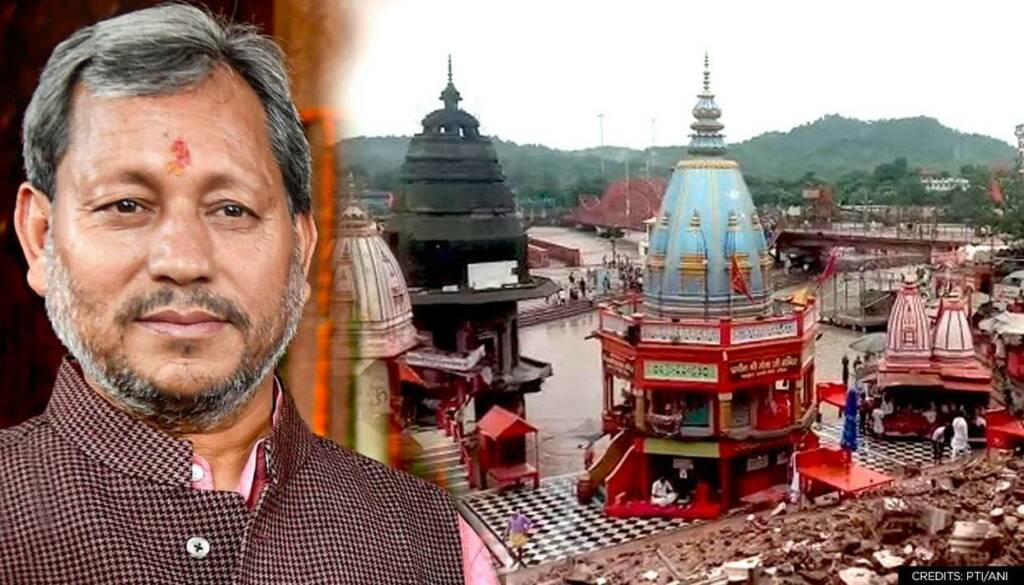The BJP government of Uttarakhand, led by newly appointed chief minister Tirath Singh Rawat has decided to free 51 Hindu temples from government control, months after the state government led by former CM Trivendra Singh Rawat had brought temples under the control of the state. The decision came after major shrines protested the state-takeover and met the chief minister. Protests have been ongoing in the state of Uttarakhand against the Devasthanam Act, which mandated the formation of the Char Dham Devasthanam Board to takeover 51 Hindu temples in the state. The temples which have been freed from government include Badrinath, Kedarnath, Yamunotri, and Gangotri.
The decision of the former chief minister, which now stands overturned by Tirath Singh Rawat, had earned the ire of Hindus across the world. At a time when a national movement of sorts is getting galvanised in favour of the Indian state and its lethargic bureaucracy exiting Hindu temples, former CM Trivendra Singh Rawat’s decision to bring 51 temples in Uttarakhand under government control had not augured well with the community.
Uttarakhand CM Tirath Singh Rawat announces to free 51 temples from Govt's control.@AnupamTrivedi26 shares details @ShivaniGupta_5 pic.twitter.com/7PaEruYs7v
— News18 (@CNNnews18) April 9, 2021
According to the act masterminded by the former CM who was recently removed from his post, the chief minister of the state would be the board’s president, while a senior officer of the Indian Administrative Service (IAS) will become the chief executive officer. The new law has the provision to sack a priest if he is found involved in any ‘wrongdoing’. Now, however, Tirath Singh Rawat has decided to do away with the said Act.
The Vishwa Hindu Parishad and RSS had made their discomfort with the Act known to the BJP government, and were in the process of galvanising a public sentiment against the state taking over Hindu temples. The VHP had said that once the donation drive for the Ram Mandir was over, they will hold meetings with the temple priests and form a strategy to counter the government. VHP’s national joint secretary Surendra Jain had even alleged that donations received by the temple could be misused.
Sensing mass resentment against its decision of taking over most important Hindu temples, the government of Uttarakhand has now decided to free such spiritual centres of state control. The BJP, on its part, has promised in its election manifesto to free Tamil Nadu temples of state control. As such, its decision to free 51 Hindu temples in Uttarakhand sets an example of how governments have no business being involved in the administration of Hindu places of worship.
Meanwhile, the freeing of 51 Hindu temples should also serve as a reminder to Hindus across India to not shy away from demanding the rightful and immediate exit of governments from their spiritual and cultural centres. Only when Hindu temples are freed from government role will they be able to play a critical societal role of challenging the proselytization being spearheaded by Christian missionaries and Islamists. Further, temples will be playing a tremendous role in keeping anti-Sanatan forces in check. Therefore, Hindus must strive for ensuring that their temples are freed from state control across the country.
